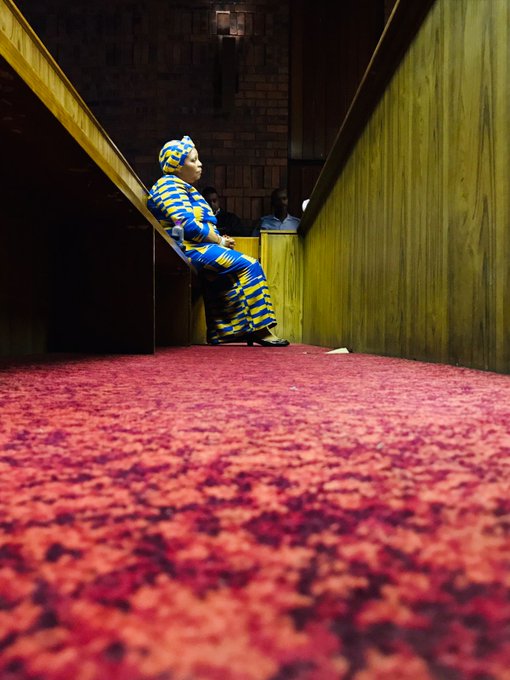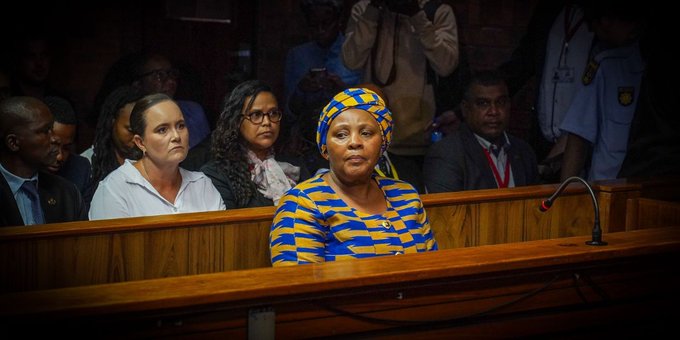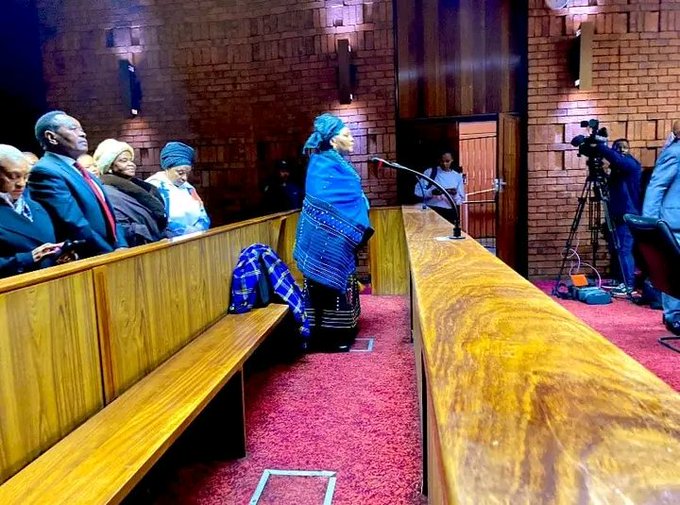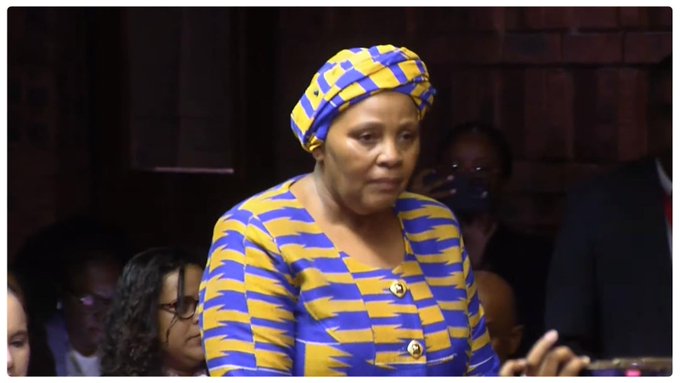
Nosiviwe Mapisa-Nqakula in court bid to have State disclose further info in her corruption case! The Pretoria High Court is scheduled to hear an application from former parliamentary Speaker Nosiviwe Mapisa-Nqakula on Thursday. The case pertains to her request for the disclosure of additional information from the State concerning her ongoing corruption trial.
Charges Against Mapisa-Nqakula
Mapisa-Nqakula is facing 12 counts of corruption and a charge of money laundering. The allegations stem from her tenure as Minister of Defence and Military Veterans, during which she is accused of soliciting and receiving kickbacks totaling R4.5 million from a defense contractor.

The payments were allegedly made in exchange for favorable treatment in awarding government contracts.
The charges against her represent a significant case in the ongoing efforts to address corruption at high levels of government, particularly involving misuse of state resources and improper relationships with private contractors.
Application for Disclosure
The former minister has filed an application for the State to disclose sections B and C of the police docket related to her case. These sections reportedly contain correspondence and the investigation diary, which Mapisa-Nqakula’s legal team argues are crucial for preparing her defense.
According to her legal representatives, these documents may shed light on the methods and integrity of the evidence-gathering process used by investigators. Mapisa-Nqakula has raised concerns about the State’s transparency and asserts that access to these sections will allow her to challenge the allegations more effectively in court.

The State’s Position
The State has opposed Mapisa-Nqakula’s application, arguing that sections B and C are classified and irrelevant to the trial proceedings. Prosecutors have stated that these sections will not form part of the evidence presented in court and therefore do not need to be disclosed.
The State maintains that releasing the information could compromise sensitive aspects of the investigation and potentially reveal methods and correspondence that are not intended for public scrutiny.
Legal and Procedural Implications
The application has drawn attention to the broader debate around the disclosure of evidence in criminal cases. According to South African law, the accused has a right to access evidence the State plans to use during the trial to ensure a fair defense. However, there are limitations on accessing materials deemed confidential or irrelevant to the prosecution’s case.
Legal analysts suggest that if the court rules in favor of Mapisa-Nqakula, it could set a precedent for greater transparency in high-profile corruption cases. On the other hand, a ruling in favor of the State could bolster the protection of investigative methods and confidential correspondence in sensitive cases.
Mapisa-Nqakula’s Defense Strategy
The former minister’s defense team has emphasized their client’s right to a fair trial and adequate preparation. They argue that the documents in question might contain inconsistencies or procedural errors in the investigation that could undermine the credibility of the charges.
By seeking access to the additional sections of the docket, Mapisa-Nqakula is likely aiming to discredit the evidence presented by the State and raise questions about the motivations and conduct of the investigation.

Broader Context
The corruption allegations against Mapisa-Nqakula come amid intensified efforts to address state capture and corruption within South Africa’s public institutions. High-profile cases such as hers serve as litmus tests for the country’s commitment to accountability and justice for those in positions of power.
Her tenure as defense minister was marred by controversies, and the current trial represents one of the most significant challenges to her political career. Mapisa-Nqakula has consistently denied the allegations, asserting her innocence and claiming that the charges are politically motivated.
What’s Next?
The Pretoria High Court’s decision on Thursday will determine whether the State must disclose the requested sections of the police docket. If granted, the ruling could significantly influence the course of the trial, providing Mapisa-Nqakula with additional tools to challenge the charges against her.
For now, all eyes are on the court proceedings, as the case highlights the ongoing struggle to combat corruption and ensure justice in South Africa’s political landscape. Regardless of the outcome, the case is expected to have far-reaching implications for both legal standards and public trust in government accountability.
#Nosiviwe #MapisaNqakula #court #bid #State #disclose #info #corruption #case



